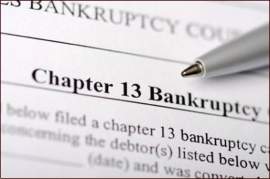
Learn About Chapter 7 Bankruptcy

Related Forms
Chapter 7 Corporation/Partnership Asset Case
Chapter 7 Individual or Joint Debtor Asset Case
Chapter 7 Corporation/Partnership No Asset Case
Chapter 7 Individual or Joint Debtor No Asset Case
Chapter 7 Individual Debtor's Statement of Intention
Statement of Current Monthly Income and Means Test Calculation (Chapter 7)
View AllWith individuals and companies struggling to cope with the financial hardships inherent in the nation's recession, bankruptcy is a very real threat for many Americans. Of course, as always, there are exceptions to the rule. For example, a select few people are thriving in this economy, though this is highly dependent on their business or line of work and their accumulation of resources prior to the recession's onset. Others may not be doing better during this period of downturn, but are managing with less.
For others who have not been so lucky and have found themselves at the short end of job cuts and other financial shortcomings, more drastic measures are required. Many American workers and corporations may be forced to contemplate Chapter 7 bankruptcy, also known as liquidation. What exactly does Chapter 7 bankruptcy entail? The following is general information on liquidation and its types:
Both private individuals and business-oriented organizations (e.g. partnerships, corporations) may file for Chapter 7 bankruptcy, which may partially explain why this form of bankruptcy is the most commonly sought-out type in the United States today. In individual fiscal years, Chapter 7 bankruptcy has been responsible for more business and non-business bankruptcy filings than Chapter 11 bankruptcy, Chapter 12 bankruptcy, and Chapter 13 bankruptcy.
Liquidation of assets refers to when part or a whole of a company is dissolved, or the material possessions of an individual are sold as a means of repaying debts. Following a formal Chapter 7 bankruptcy request, the liquidation of assets is overseen by an appointed trustee.
Liquidation can be requested by a number of different parties, including even the Secretary of State in certain cases. Irrespective of who petitions to move forward with such a process, though, there are two major manners by which it can be conducted. Some applications for Chapter 7 bankruptcy occur at the behest of individuals or companies themselves. In the event of a business, they will usually cease to do business if they have not already. Meanwhile, liquidation of assets may be demanded by the creditors that first issued loans and any other agencies to which people may be indebted, in which case such an operation is considered compulsory liquidation.
NEXT: Learn About Chapter 7 Statistics





















